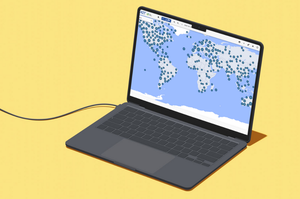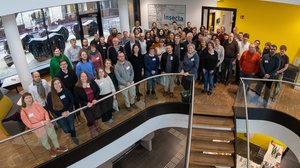Research Data Day in Bremen: Open Doors for Open Data
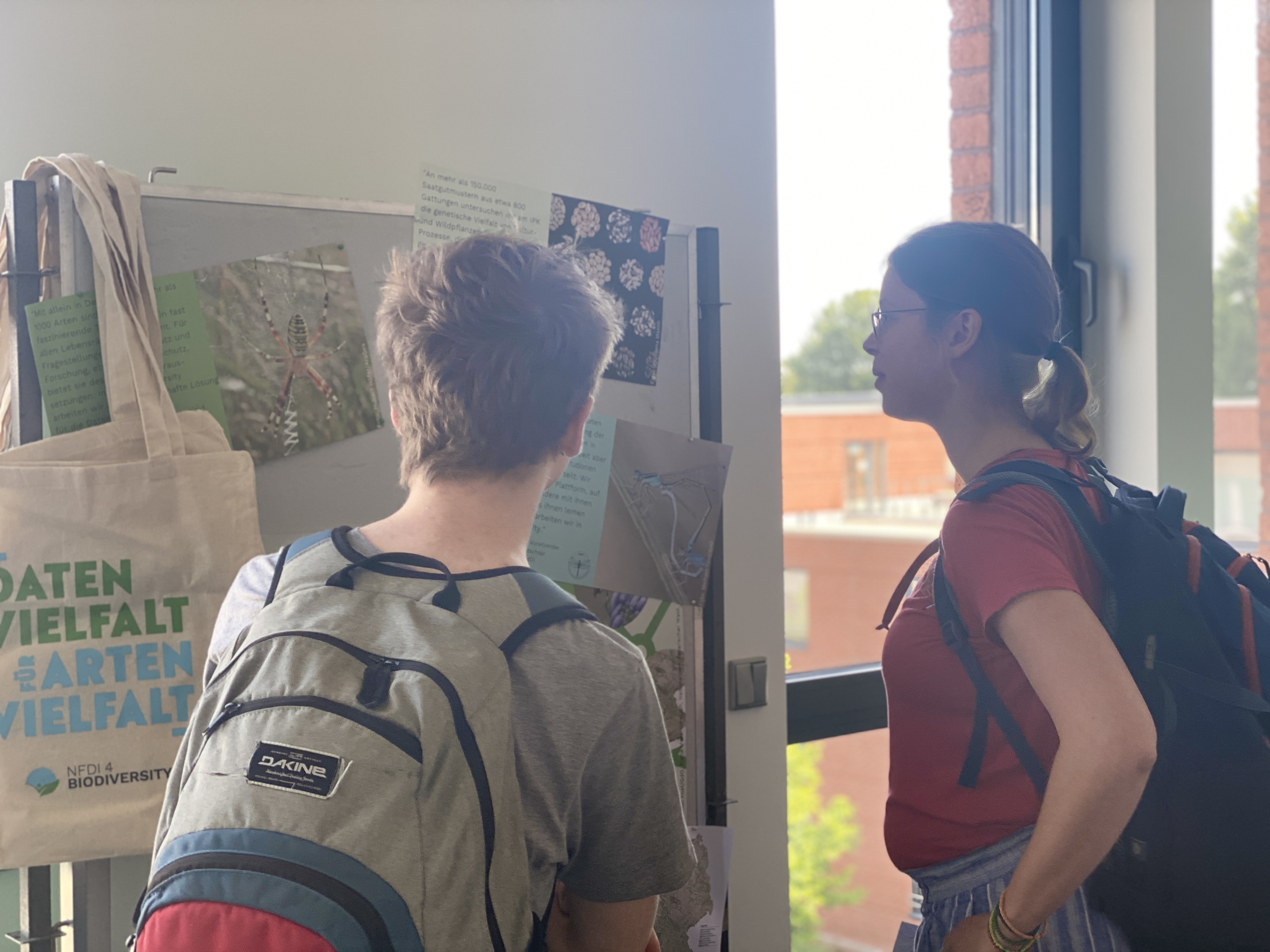
Under the motto "Open Doors for Open Data", the members of the U Bremen Research Alliance, including the University of Bremen, jointly invited to the Research Data Day on 07 June 2023. Students, researchers and the interested public could expect a varied programme with contributions from different scientific disciplines on the campus of the University of Bremen. NFDI4Biodiversity was also present and offered visitors the opportunity to expand their knowledge of research data management and make new contacts.
Application-oriented lectures at the opening
A public opening of the event took place the evening before under the motto "Research data in times of digitisation - successes and challenges of cooperative research data management" in the Haus der Wissenschaft. The Rector of the University of Bremen and Chair of the U Bremen Research Alliance, Jutta Günther, welcomed the participants.
Three exciting and application-oriented presentations highlighted the importance of sustainable research data management and its potential for science, business and society. Heide Ahrens, Secretary General of the German Research Foundation (DFG), presented the current developments in research data management in her talk and emphasised the need for a cultural change in dealing with data.
Hajo Zeeb, Head of Department for Prevention and Evaluation at the Leibniz Institute for Prevention Research and Epidemiology – BIPS GmbH, spoke about the role of research data management in knowledge-based policy decisions. He emphasised the importance of high-quality data and its use for policy advice, especially in times of crisis such as the Covid pandemic.
In his presentation, Christof Wolf, President of GESIS – Leibniz Institute for the Social Sciences, shed light on the prerequisites for data-based decisions in politics. He emphasised the importance of transparent data infrastructures and appropriate legal frameworks.
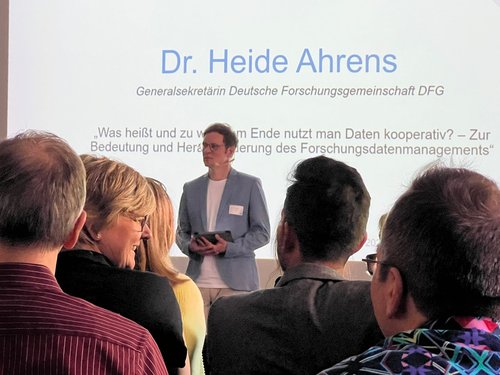
The presentations were complemented by moderated Q&A sessions where the audience had the opportunity to gain further insights and ask questions. There was agreement among those present that good data and sound analyses are essential to make good decisions for nature conservation and environmental protection. It was emphasised how important the exchange between science, politics and media reporting is. Furthermore, it was emphasised that a triangle of science, politics and media alone is not sufficient, but a quadrilateral with the involvement of the population is necessary. The acceptance and the benefit for society must be clearly communicated. The question was raised whether the NFDI is able to do this. It is noted that it is not enough to know what is needed, but that further action is needed.
Intensive exchange and networking: Open doors at NFDI4Biodiversity
On Research Data Day itself, the NFDI4Biodiversity project coordination opened its doors at Unicom near the Unicampus. With a workshop, an inspiring lecture and informal talks at the information stand, the consortium offered participants an intensive exchange and exciting insights into the work of the network.
The workshop offered at the event focused on research data management (RDM) and services that assist with key aspects of the data lifecycle. Participants gained insights into how to create a data management plan (DMP) as well as how to prepare, submit and archive heterogeneous data in domain-specific archives and collections.
During the lecture, challenges and solutions were presented using concrete use cases from the national research data infrastructure NFDI. Approaches for the management of biodiversity data were presented that were particularly relevant for the participants.
NFDI4Biodiversity was also able to enrich the informal exchange. Representatives of the network held interesting discussions with students, young scientists, established researchers and the interested public. They provided information about the network's services and were available for questions and suggestions. Particular emphasis was placed on access to modern technologies and a comprehensive stock of biodiversity and environmental data, as well as tried and tested methods and tools for archiving, publishing, searching and analysing data.
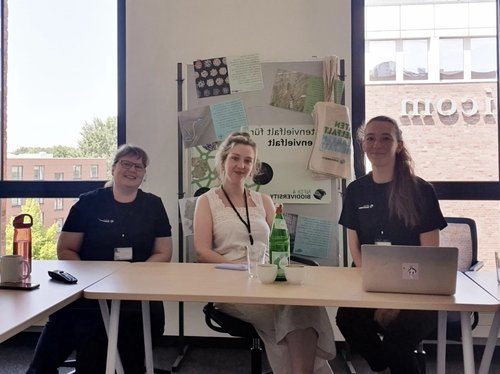
Please enter your Mastodon instance







